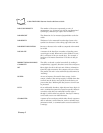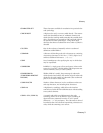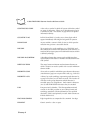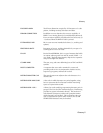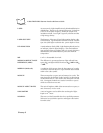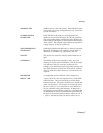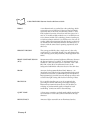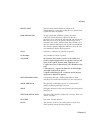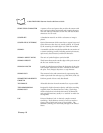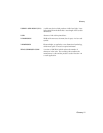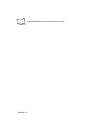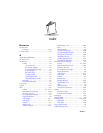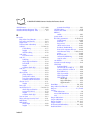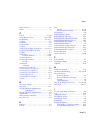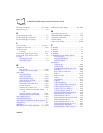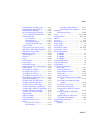
Glossary-10
P 300 STD/FZY/PRO Scanner Product Reference Guide
START/STOP CHARACTER A pattern of bars and spaces that provides the scanner with
start and stop reading instructions and scanning direction.
The start and stop characters are the first and last encoded
characters of a bar code.
SUBSTRATE A foundation material on which a substance or image is
placed.
SUBSTRATE SCATTERING Optical phenomenon which causes bars to appear larger and
spaces narrower than they are actually printed. It is caused
by the scattering of incident light rays within the medium.
SYMBOL A scannable unit that encodes data within the conventions of
a certain symbology, usually including start/stop characters,
quiet zones, data characters, and check characters.
SYMBOL ASPECT RATIO The ratio of symbol height to symbol width.
SYMBOL HEIGHT The distance between the outside edges of the quiet zones of
the first row and the last row.
SYMBOL LENGTH Length of symbol measured from the beginning of the quiet
zone (margin) adjacent to the start character to the end of
the quiet zone (margin) adjacent to a stop character.
SYMBOLOGY The structural rules and conventions for representing data
within a particular bar code type (e.g. UPC/EAN, Code 39).
SYMMETRIC BAR WIDTH
GROWTH
Uniform growth of bars evenly distributed.
TOLERANCE Allowable deviation from the nominal bar or space width.
TWO-DIMENSIONAL
SYMBOLOGY
Designed for high information density and higher encoding
capability than one-dimensional bar codes, a symbology
which encodes data in both the horizontal (X-dimension)
and vertical dimensions, usually in a “stacked” or multi-row
arrangement.
UPC Universal Product Code. A relatively complex numeric
symbology. Each character consists of two bars and two
spaces, each of which can be any of four widths. The
standard symbology for retail food packages in the United
States.



